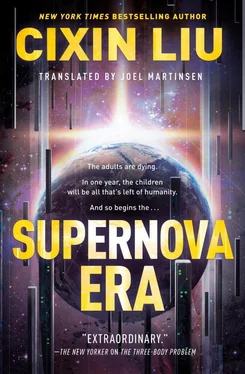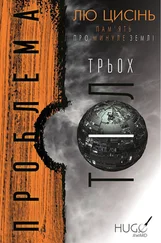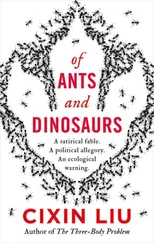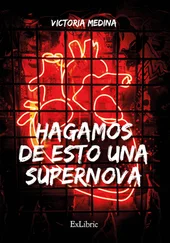“Very well. But do it quickly. This is more dangerous than when the Epoch Clock ran out. The country’s going to be picked clean!”
* * *
The children remained astonished for the next three days: The adults had left behind so much stuff, so many tasty things to eat and to play with. The next feeling was one of confusion: If the ideal world was so close, why had they never made it there before? The children forgot everything; even the older ones who had retained a modicum of sense during the New World Assembly had their anxieties about the future whisked away by the revels. This was the most carefree time in all of human history, and the entire country turned into a pleasure garden of juvenile overindulgence.
* * *
In the Candytown period, three students from Zheng Chen’s class, the letter carrier Li Zhiping, barber Chang Huidong, and cook Zhang Xiaole spent their time together now that they didn’t have to go to work. The postal service was practically shut down, so Li Zhiping had no mail to deliver; no one went to Chang Huidong’s shop to get a haircut, because children didn’t care as much for appearances as adults might have wished; Zhang Xiaole the cafeteria chef had even less cause for staying in the kitchen, since the children had far better places to forage. For three days of Dreamtime, every cell in their body had been in a state of excitement and they slept little. They woke every morning just after dawn, as if a voice were calling out to them, “Come, look, another wonderful day has begun.”
Every morning when they stepped out into the fresh air, the three boys felt the joy of birds liberated from the cage. Complete freedom was theirs. With no restrictions and no work to finish, they could go anywhere they pleased, and play whatever they wished.
The past few mornings, children like themselves had played physically strenuous games; younger children who played war games or hide-and-seek could hide so well you’d never find them, since anywhere in the city was fair game. The bigger kids could play cars (real cars!), soccer, and street hockey in the middle of the road. They played hard, since apart from the play itself they had another goal in mind: preparing for the midday feast. They had eaten well the past few days, but they were nowhere near satiated. Every morning, the children did their utmost to play themselves to exhaustion, hoping above all else that when it came time for lunch, they would be able to exuberantly tell themselves, “I’m hungry!”
The games stopped at eleven thirty, and at noon the feast began. With so many possibilities throughout the city, the three boys realized it was unwise to eat at the same spot every time, since each location sourced from the same warehouse every day, so meals lost their novelty.
But the feast at the stadium was different. It was the largest feast in the city, serving more than ten thousand children a day. And the food options were even more plentiful. Walking into the stadium was like entering a labyrinth whose walls were built out of cans and cakes. You had to keep your wits about you or you’d stumble over the piles of choice candies underfoot. One day, Li Zhiping gazed down from a high-up stadium seat at the grubby children swarming over the mountains of food on the playing field like ants on a frosted cake. The mountain was a little lower after each feast, but it was replenished by children making afternoon deliveries.
After a few visits, they gained a bit of experience about eating: if they found something tasty, they could only eat a little of it at a time before it turned unpleasant. Zhang Xiaole learned an illustrative lesson from luncheon meat. The first time he ate eighteen varieties, twenty-four tins all told—he didn’t finish them, of course, but just had a few bites of each—but the stuff had tasted like sawdust in his mouth ever since. They also discovered that beer and hawthorn jelly were useful in this regard, and for the next few days they used them as appetizers.
Although the stadium feast was spectacular, the three boys were even more impressed by the feast they saw at the Asia Pacific Building, which had once housed the city’s fanciest hotel. The tables were piled high with gourmet products they had only seen before in foreign films, but the only diners were kittens and puppies. Drunk on French wine and Scottish whisky, the little animals swayed on unsteady feet to the uproarious amusement of their little masters in the audience.
The midday feast meant that afternoons were devoted to more sedentary pursuits, such as cards, video games, and billiards, or even just watching television. Only one activity was essential: drinking beer. Everyone drank two or three bottles every afternoon to aid digestion. After dark, the three boys joined the citywide revelry of singing and dancing that lasted till midnight, by which point they’d worked up enough of an appetite for dinner.
* * *
It wasn’t long before the children were tired of playing. They learned that nothing in the world was fun forever, nothing was eternally delicious, and when everything was easily attainable, it quickly lost all flavor. The children were tired, and gradually, the games and feasts turned into a type of work. And they didn’t want to work.
Three days later, the child army entered the city with the task of protecting state assets. Food and other life necessities had to be divvied up according to actual needs, and a stop was put to profligate indulgence. The situation was brought under control more easily than anticipated, without erupting into large-scale bloodshed.
But subsequent events did not improve in the way that the young leaders had hoped. Every development in the children’s world revealed a new, strange face entirely beyond the imagining of the adults in the Common Era.
The Candytown period entered its second phase: Slumbertime.
For the next several days, apart from fetching food from the distribution points, Li Zhiping and his companions did little but sleep. They slept long, eighteen or twenty hours a day. They ate, but with no one to push them to wake up, they simply lay there sleeping. Sleep came easier with practice. The mind grew sluggish and they felt perpetually drowsy. There was no point to doing anything; it was all tiring, even eating.
Now they realized that total idleness was exhausting, and it was a more frightening exhaustion than they had ever known. When they got tired working or studying, they could rest, but now rest itself was tiring, leaving sleep the only recourse, but the more they slept the sleepier they became.
When they lay awake they had no desire to rise, since their very bones felt soft and rubbery. They simply lay there looking up at the ceiling, their minds absent of thoughts, and none likely to come. It was hard to believe that lying in bed with an empty mind could be so tiring. They’d lie for a while, and then fall asleep, and eventually they couldn’t tell day from night.
Humans were a sleeping creature, they decided, and waking was the abnormal state. During those days they became denizens of slumberland, spending the bulk of their day living in dreams. Dreams were better than being awake, since they could return over and over to the country depicted in the New Five-Year Plan, go inside that megatower, ride the huge roller coaster, visit Candytown and taste a piece of windowpane.
The only time the boys communicated now was when they woke up and told each other about their dreams; when they finished, they pulled up the covers again and went back in search of the wonderful world they had just visited. But they never found it, and were taken instead to a different place. Little by little the dreamworlds faded and grew more and more like the real world, until eventually they found it very difficult to distinguish the two.
Читать дальше







![Лю Цысинь - Эпоха сверхновой [litres]](/books/393110/lyu-cysin-epoha-sverhnovoj-litres-thumb.webp)




